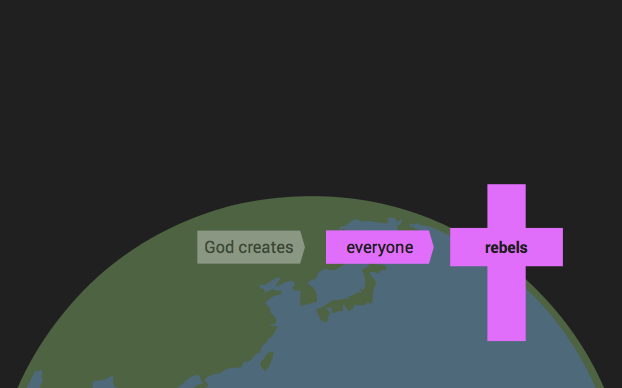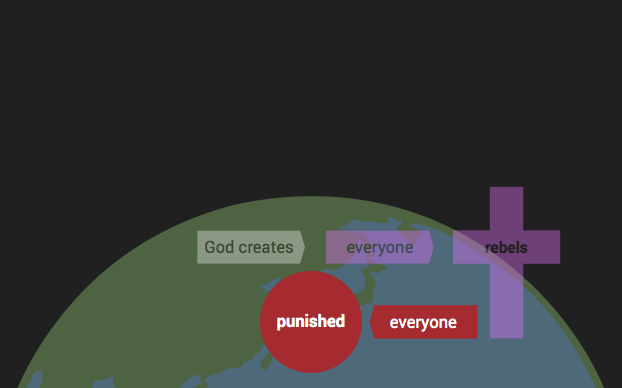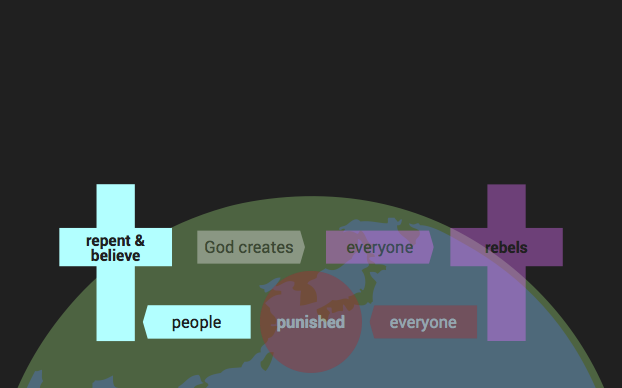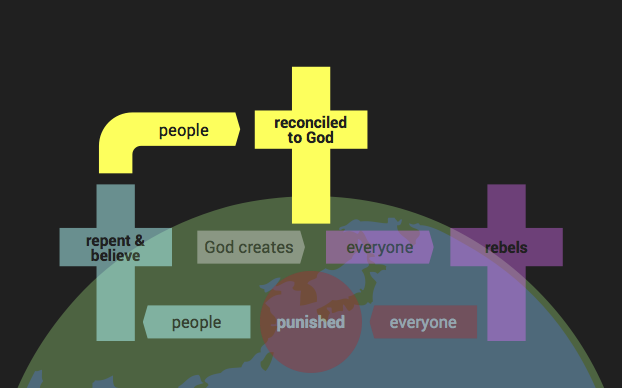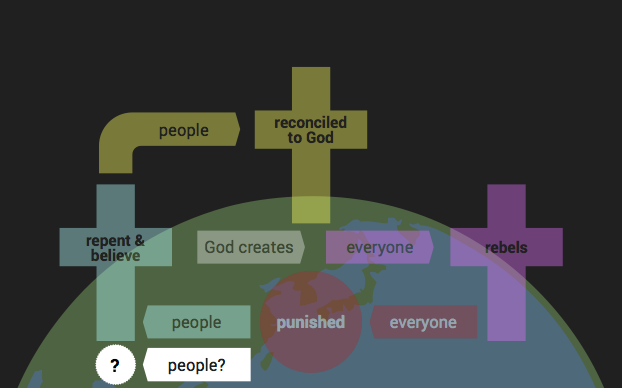With Christ as my witness, I speak with utter truthfulness. My conscience and the Holy Spirit confirm it. My heart is filled with bitter sorrow and unending grief for my people, my Jewish brothers and sisters. I would be willing to be forever cursed—cut off from Christ!—if that would save them.
Romans 9:1-3 (NLT)
Wow! Would you be willing to be cut off forever for the sake of others? I’m not confident I’d even be brave enough to die for someone, let alone be cut off forever. However, I believe Paul genuinely meant what he wrote as he gave up his life to serve others—he was literally killed doing it.
Jesus also valued the fate of others more than His own. He was cursed and killed by us yet miraculously He was raised. This will lead to the end of Paul’s sorrow and grief as it inaugurated the salvation of all our brothers and sisters! Paul doesn’t need to be forever cursed, indeed Christ says that in the Age to Come, “There will no longer be any curse” (Rev 22:3, cf Rom 5:12-21).
Do nothing out of selfish ambition or vain conceit. Rather, in humility value others above yourselves
Philippians 2:3 (NIV)
Be devoted to one another in love. Honor one another above yourselves.
Romans 12:10 (NIV)
We are encouraged to value others above ourselves. This doesn’t mean despising ourselves as we are God’s precious children but hopefully it challenges us to be less self-indulgent. I know that’s hard as we are continually bombarded by a culture telling us we must focus on ourselves above all else and that we never have enough.
As Paul said in Romans 9, an even bigger aspect of valuing others is caring about their salvation. We definitely should do that now but what about when others don’t appear to be saved in this life? What does valuing others above ourselves look like in the Age to Come? I’d suggest we will continue inviting them:
Both the Spirit and the bride** say, “Come!”
Let anyone who hears, say, “Come!”
Let the one who is thirsty come. Let the one who desires take the water of life freely.
Revelation 22:17 (CSB)
I love how the invitation grows exponentially as the non-believers hearing and receiving the water of life invite others, who in turn invite even more!
** “the bride” is Christ’s Church, who I believe already have the water of life because when Jesus gives people the “water” now they never thirst again (John 4:14, below).
Jesus reinforces the “never” with the phrase: eis ton aiōna. Thayer’s, NAS, HELPS, et al. describe eis as “denoting entrance into” or “motion into”, ton as “the”, and aiōna as “age”. Those who receive His “water” now won’t be thirsty now, nor going forward into the Age to Come. I say, “Age to Come” because:
- We can’t go “into” our current age because we’re already in it.
- As the “water” quenching the thirst is directly linked to the life aiōnion—the adjective of aiōna—almost always describes things pertaining to the “Age to Come”.
Paul describes even the idea of his “brothers and sisters” not being saved as “bitter sorrow and unending grief”. His concern about salvation also extended to his Gentile (non-Jewish) “brothers and sisters” as he spent decades seeking to see them saved too:
For so the Lord has commanded [Paul and Barnabas], saying,
“‘I have made you a light for the Gentiles,
Acts 13:47, cf Isa 49:6, Rom 11:13, Eph 3:1 (ESV)
that you may bring salvation to the ends of the earth.’”
Indeed, a strong argument can be made that if anyone wasn’t saved believers would experience “unending grief” because Humanity is so tightly interconnected:
- Biologically we are all one species—indeed one race—who are all distantly related to one another.
- Physically we all share this planet, this global village.
- Temporally we all live in this age together.
- Psychologically by agape love—the self-sacrificial love that God shows us and asks us to display. Talbott insightfully points out that in order to fully love someone, we must love those whom they love. Given there are now only six degrees of separation, this love creates a redundantly linked network between everyone.
- Spiritually Christians believe we all share in the image of God, which is one of the reasons we are all children of God, even those who don’t yet live in the light of that relationship.
Praise be to God that He promises our grief will end when each and every person is made new!
He will wipe away every tear from their eyes. Death will be no more; grief, crying, and pain will be no more, because the previous things have passed away. Then the one seated on the throne [Jesus] said, “Look, I am making everything new.”
He also said, “Write, because these words are faithful and true.”
Revelation 21:4-5 (CSB)








